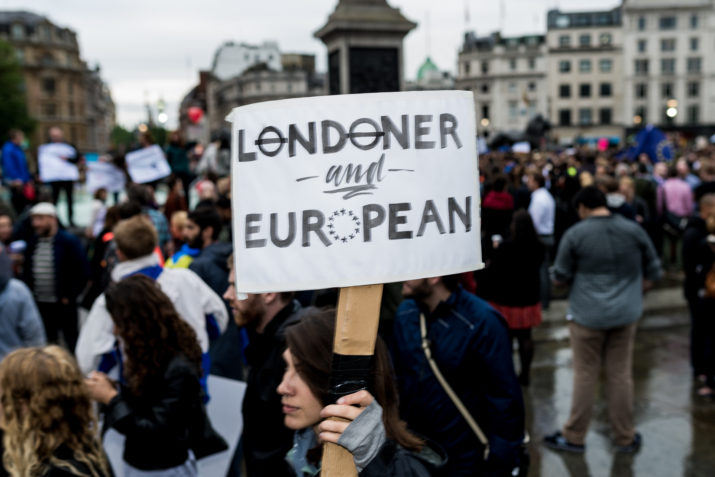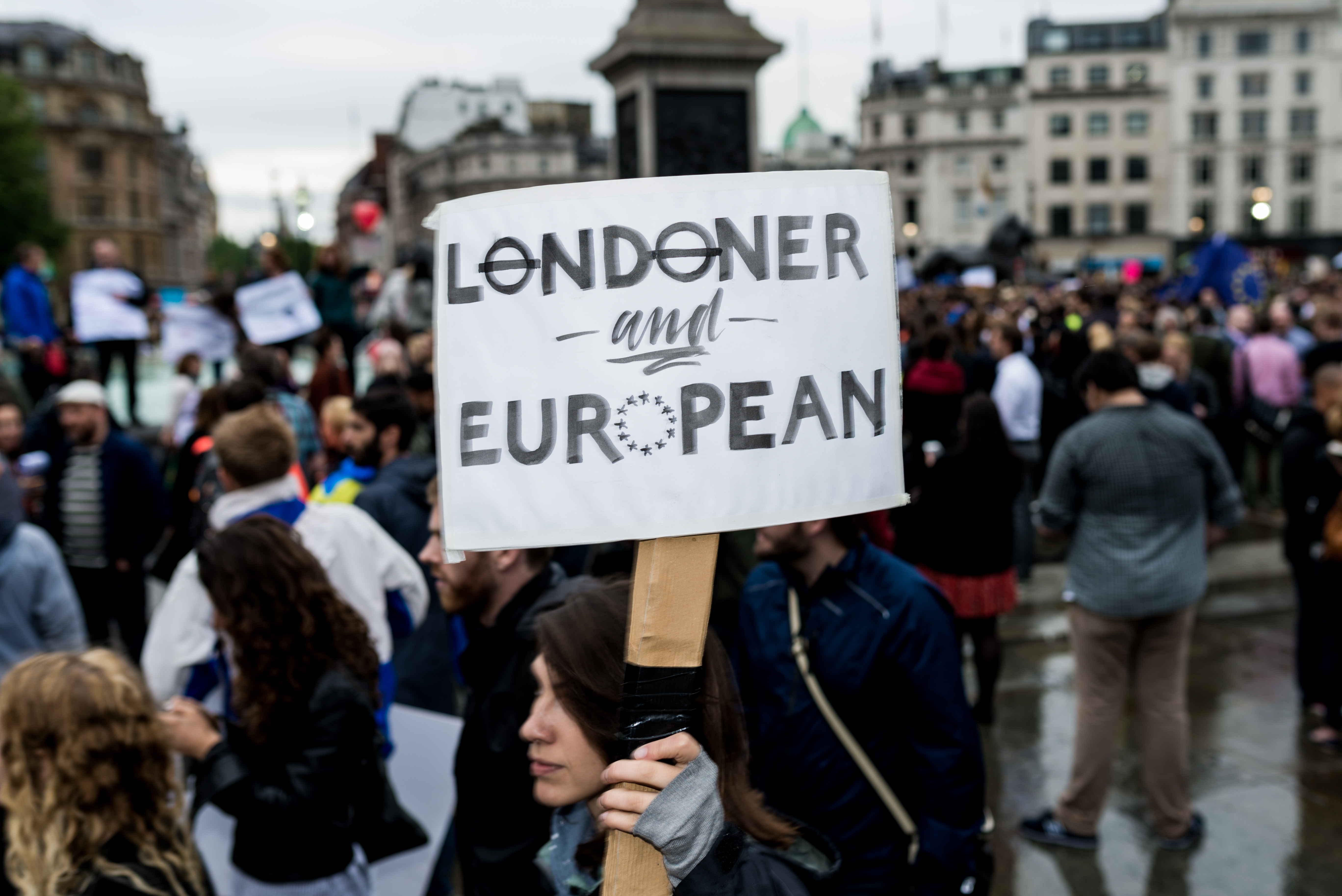

In his recent meditation on the role of reactionary ideas in politics, The Shipwrecked Mind, Mark Lilla provides a provocative and profound interpretation of political reaction. “The reactionary mind is a shipwrecked mind,” he writes, “Where others see the river of time flowing as it always has, the reactionary sees the debris of paradise drifting past his eyes. He is time’s exile. The revolutionary sees the radiant future invisible to others and it electrifies him. The reactionary, immune to modern lies, sees the past in all its splendor and he too is electrified.”[1] In other words, reactionaries are of a similar ilk to revolutionaries; both mindsets draw their energy and values from “historical imaginings.” For the revolutionary, the prospect of a Marxist utopia in which class antagonisms have been overcome allows him or her to dismiss our liberal-democratic age as a mere stepping stone, a temporary phenomenon that is supposed to give way to a better future. For the reactionary, on the other hand, history has simply gone too far. The “well-ordered state where people who know their place live in harmony and submit to tradition and their God,”[2] has been dislodged by a chaotic, corrupt, and frivolous society which, if left intact, is bound to come to an end in an apocalyptic fashion. As the term “historical imaginings” suggests, however, the visions put forth by both mindsets are grounded in myths rather than reality. They rely on a combination of romanticized imagery and doomsaying in order to condemn the present.
Nowhere has this delicate relationship between reaction and revolution come more to the fore than in the United Kingdom’s decision to withdraw from the European Union (EU). During the campaign leading up to the referendum, the Leave Camp–spearheaded by the likes of Boris Johnson, Michael Gove, and Nigel Farage–tirelessly invoked the past as a preferable alternative to the present. Under the slogan of “let’s take back control,” the Leave Camp promoted an image of the United Kingdom as a once great nation now encumbered by the shackles of the bureaucratic Leviathan that is the EU. Theresa May, though a supporter of the Remain Camp during the campaign, was quick to latch on to the Leave Camp’s rhetoric after she assumed the position of Prime Minister. During her keynote speech on the final day of the Conservative Party’s annual conference, which took place two and a half months after the referendum, May confidently stated that as a result of Brexit, the United Kingdom was going “to become, once more, a fully sovereign and independent country.”[3] The implications of these statements are clear; only by once again becoming a fully sovereign country will the UK be able to rediscover its true glory.
Ever since the referendum took place, the British government has had to come to terms with the fact that while promoting nostalgia for a glorified past may prove an effective strategy for wooing voters, it is next to useless as a foundation for coherent and effective politics. By dismissing the EU as some kind of foreign entity that has done little more for the UK than burden it with absurd laws, the Brexiteers may discover that they have engaged in a Faustian gambit in which they have sacrificed complexity for the sake of winning the referendum. Consequently, they now find themselves having to explain why Brexit might be a slightly more complicated process than they promised. The truth is that the EU is so entangled with the legal, economic, and political fabric of the UK that the process of Brexit will necessarily lead to nothing less than an upheaval of the modern British state as we know it. Such a development will not lead to the a return of the glamourized pre-EU UK that the Brexiteers dream of, however, but rather an entirely different being.
Consider the economic consequences of a hard Brexit that will take Britain out of the EU’s single market and customs union. For Brexiteers, such a step would represent an economic emancipation of their country, a development that would allow British businesses to flourish in the absence of arbitrary EU regulation, and for the UK itself to strike trade deals with non-EU member states without having to rely on the EU. The reality, however, is that the UK economy is more dependent than ever on its membership of the EU. For the past couple of decades, the British economy has essentially been built around a strategy in which the country’s favorable financial and legal environment, combined with its access to the EU, has been used to attract foreign capital on an unprecedented scale. This influx has resulted in what has been described as the “death of British business,”[4] a situation in which British companies have either become increasingly uncompetitive, or disappeared entirely. As Simon Head has argued, “what has saved Britain from relegation to the European lower echelons—to the level of Italy, Spain, or worse—has been the pursuit over several decades of an economic strategy that has encouraged global corporations in both manufacturing and financial services to come to the UK and fill the British business vacuum.”[5] Once the UK loses access to the single market, foreign companies will have little reason to invest in the British economy—a warning that has been put forth by numerous countries, including Japan[6] and the US[7]—and as a result of decades of reliance on foreign business, British companies will not be strong enough to fill the vacuum left behind.
The legal ramifications of Brexit seem no less daunting. Theresa May has set out plans for a “Great Repeal Bill” to be included in the next Queen’s Speech. While there is next to no information available regarding the specifics of such a bill, it seems that it will be intended for removing the European Communities Act 1972 (ECA), the mechanism by which EU law is brought into UK law. Such a bill would convert existing EU-based laws into domestic legislation, thereby allowing Parliament to “amend, repeal and improve any law it chooses.”[8] Such an act would constitute nothing less than the “greatest legal transplant on these isles since the reception of Roman law in Scotland in the late Middle Ages.”[9] Disentangling and assessing 43 years of legal integration will occupy the British parliament and civil service for years. To further complicate matters, the ECA and other primary legislation implementing EU laws are incorporated into the devolution states in Scotland, Wales, and Northern Ireland. Consequently, any attempt to convert existing EU law into domestic British law will necessarily touch upon devolved matters, an action that is bound to set Westminster on a collision course with devolved assemblies in Northern Ireland and Scotland. Considering the fact that Scotland voted in favour of the UK staying in the EU by 62 percent to 38 percent, such a conflict could ultimately have fatal consequences for the Union.[10]
In their desperate attempt to promote a vision of a United Kingdom, which is based on a glorified and nostalgic interpretation of the past, Brexiteers have unleashed a process that risks upending the legal, economic, and political foundations of the modern UK. Furthermore, they have yet to offer a coherent and realistic vision of what will replace it. As reactionary politics are bound to continue to play an integral role in 2017–the inauguration of Donald Trump as the 45th President of the United States will take place in January, Francois Fillon is all but certain to face the National Front’s Marie Le Pen in the second round of the French Presidential Election on April 23, and the Alternative für Deutshland party is currently projected to win 15 percent of the vote in the German Federal Election in September, thereby becoming the first radical-right party to enter the Bundestag since the Constitution of the German Democratic Republic was created in 1949[11]–Brexit as a phenomenon provides an important window into how reaction as a political philosophy will be translated into an actual political program. Judging by the results so far, reactionary political forces may find it easier to dismantle existing political institutions than they will replacing them.
Jacob Høi Jensen was born in Copenhagen, Denmark. In 2016 he earned an MA in European Studies from King’s College London. From 2012 to 2015 he worked for the New York-based non-proft organization Human Rights Foundation. He currently works for the Danish tax authority, SKAT.
Photo: June 2016, Ed Everett | Flickr
References
[1] Lilla, Mark. The Shipwrecked Mind: On Political Reaction. New York: New York Review, 2016. Print. Page XXI.
[2] Ibid.
[3] The Independent. (2016). Read Theresa May’s keynote speech to the Conservative conference in full. [online] Available at: http://www.independent.co.uk/news/uk/politics/theresa-may-speech-tory-conference-2016-in-full-transcript-a7346171.html [Accessed 25 Nov. 2016].
[4] Head, S. (2016). The Death of British Business. [online] The New York Review of Books. Available at: http://www.nybooks.com/daily/2016/10/18/brexit-death-of-british-business/ [Accessed 26 Nov. 2016].
[5] Ibid.
[6] Edwards, J. (2016). You should read Japan’s Brexit note to Britain — it’s brutal. [online] Business Insider. Available at: http://www.businessinsider.com/japan-brexit-note-to-britain-2016-9?r=UK&IR=T&IR=T [Accessed 2 Jan. 2017].
[7] Moshinsky, B. (2016). US business lobby to UK: We need ‘unfettered access’ to Europe. [online] Business Insider. Available at: http://www.businessinsider.com/us-chamber-of-commerce-warning-over-brexit-2016-10?r=UK&IR=T&IR=T [Accessed 3 Jan. 2017].
[8] Reuters. (2016). Highlights: British PM May on Brexit, Article 50 and trade. [online] Available at: http://www.reuters.com/article/us-britain-eu-may-speech-idUSKCN1220LM [Accessed 26 Nov. 2016].
[9] Murkens, Jo. 2016. “The Great ‘Repeal’ Act Will Leave Parliament Sidelined And Disempowered”. LSE – London School of Economics. http://blogs.lse.ac.uk/brexit/2016/10/21/the-great-repeal-act-will-leave-parliament-sidelined-and-disempowered/.
[10] BBC News. (2016). EU referendum: Scotland backs Remain as UK votes Leave – BBC News. [online] Available at: http://www.bbc.com/news/uk-scotland-scotland-politics-36599102 [Accessed 2 Jan. 2017].
[11] Arzheimer, K. (2016). Look ahead to 2017: The German federal election. [online] European Politics and Policy. Available at: http://blogs.lse.ac.uk/europpblog/2016/12/31/look-ahead-to-2017-the-german-federal-election/ [Accessed 2 Jan. 2017].
The opinions expressed in this article are the views of the author and do not reflect the views of any employer.
Published on January 5, 2017.




